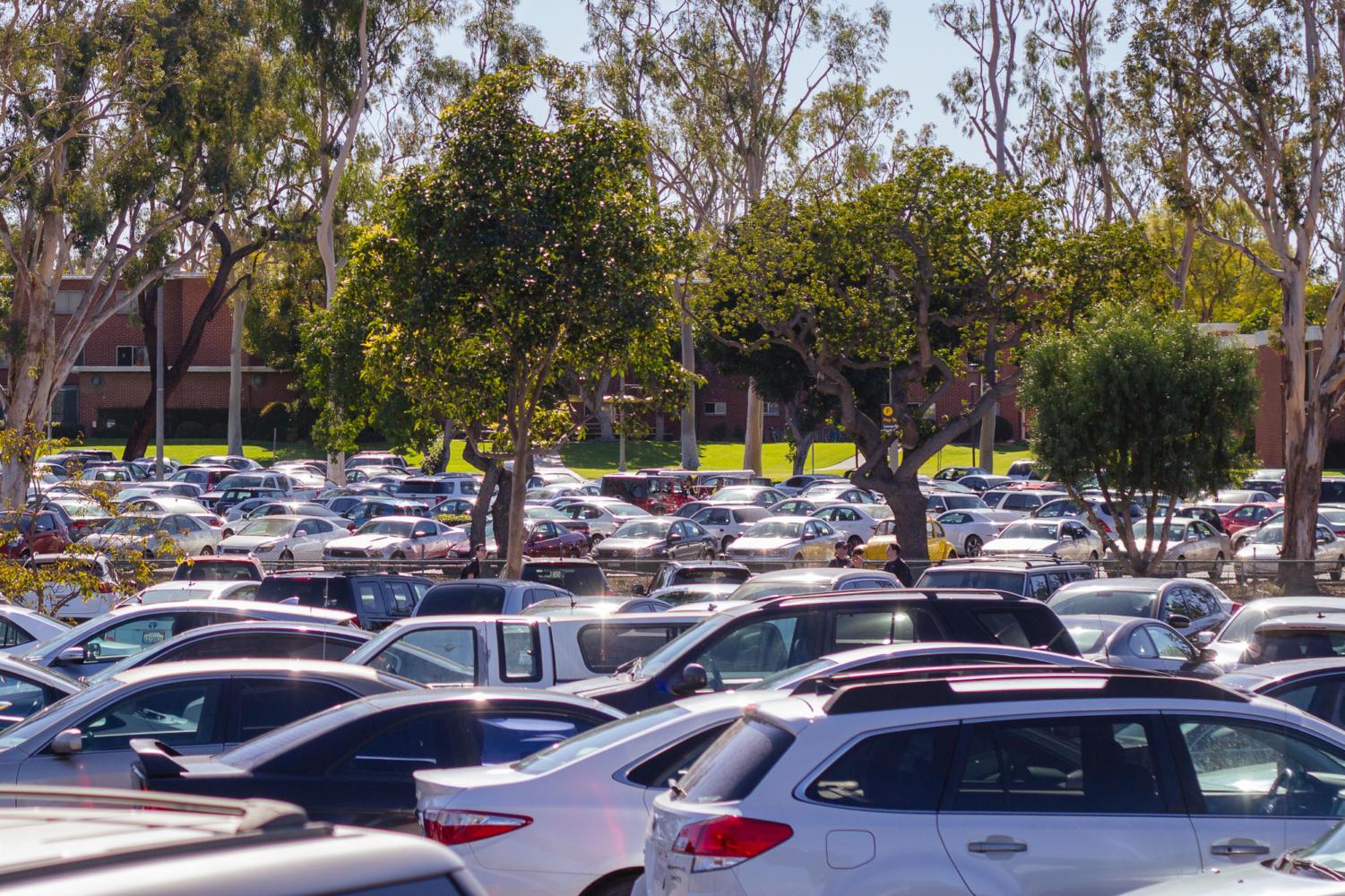With over 103,000 applicants, Cal State Long Beach takes in more and more students each semester, causing parking to become an increasingly difficult feat for some commuters to pull off.
Students are often seen driving around in circles, trying to find one out of 10,571 student parking spaces that exist on campus.
The university offered offsite overflow parking at the Greek Orthodox Church last September, but the temporary parking option was not offered this semester “based on decreasing parking demand on campus and low offsite overflow parking usage rates,” according to Parking and Transportation Services. However, it would seem that students are experiencing quite the opposite.
“Last semester when I had class at 11 a.m., I would have to come two hours early to get a parking spot,” said Julissa Campos, a third year business major at Long Beach. “If you hit the parking structures or any of the lots at the wrong time, good luck getting to class.”
Although there is no way to officially measure the peak parking traffic, Parking and Transportation said that the busiest times are always between 10 a.m. and noon. Representatives from the department suggest arriving early to allow plenty of time to locate parking prior to class times.
Last year, Parking and Transportation Services made a total of $8,347,908 in 22,400 permit sales and had a total revenue of $11,071,817 and $12,278,704 in expenses. According to the annual parking report, the revenue funds maintenance, construction and several other parking-related expenses. Last year, there was a net operating shortfall of $1,206,887.
Every year, parking pays off its debts through its retained earnings and reserves fund.
As of July 1, parking representatives raised the cost of parking privileges for a number of different groups on campus.
This semester, the regular student parking permit increased by $7. Next semester, the permit will increase another $10, totaling to $140 to park. By the 2020-2021 academic year, students will have to pay $175 for a regular permit. Despite the rise in costs, the university retains the lowest parking permit costs among the CSUs.
Other schools are experiencing the same issues with parking. At Cal State Fullerton, students have to pay $236 per semester for a parking permit — almost double the price of CSULB permits.
“Parking is pretty bad depending on the time of class,” said Jamie Gallagher, a second year business major at CSUF. “People will sit waiting for a spot to park for an hour or so.”
Annually, Cal State Los Angeles charges their students $474 to park, $474 for Fullerton, $330 for San Diego, $246 for Long Beach and $220 for Dominguez Hills.
Some have found different ways to mitigate the increasing cost of permits.
“I drive to school and park off campus in free parking on the street,” said Eric Johnson, a senior kinesiology major. “My girlfriend and I share a parking permit, so when one of us doesn’t have class, the other parks on campus and we carpool on days that we have similar schedules.”
Neighborhoods between Stearns Street and Atherton Street often provide free parking for students as well for a few hours.
The university does not plan to increase parking spots on campus, because that would deter their mission to meet emission standards, according to Jeff Bliss, executive director of media and digital news.
“We also have to keep in mind that we are trying to reduce our carbon footprint and meet the [South Coast Air Quality Management District mandate], to reach carbon neutral status by 2030,” Bliss said. “Creating more parking on campus would encourage more driving to campus, which would defeat what we are trying to accomplish. We really want to encourage students to take advantage of alternative ways to get to campus.”
As part of the Sustainable Transportation Programs, the university encourages “walking, bicycling, carpooling, taking campus shuttles or participating in the U-Pass Program that allows qualifying participants to ride all Long Beach Transit buses for free,” according to the annual parking report.
“I longboard one and a half miles to avoid the permit, so I don’t have to deal with parking,” said Justin Kemper, a junior business finance major. “Sometimes, if I’m running late, I’ll just drive…park in a neighborhood and longboard the rest of the way.”
Parking and Transportation members hope these other modes of transportation will lower the rate of campus parking.
“I split a permit with someone who has the opposite schedule,” said Ramcel Apostol, a sophomore majoring in criminal justice. “I posted on Facebook that I only have classes Tuesdays and Thursdays, and luckily, I found someone who has Monday and Wednesday classes.”
The university plans to completely demolish and overhaul Lot 16 during the 2017-2018 school year according to the annual parking report, but there are no plans to expand parking at this time.





Just start selling parking hang tags and enforcing them. It really serves a dual purpose; lessen the amount of vehicles in total wanting or willing to park in the area, and also generate some revenue at the same time with the sale of the passes themselves.